Petron, Mirzan, Mokhzani and Mahathir - The richest oil barons in Southeast Asia (Part One)
Raggie Jessy
Mirzan Mahathir holds shares both in Petron Malaysia (PEM) and its parent concern, Petron Corporation.
He is also a stakeholder in San Miguel Corporation, a Philippines based food and beverage giant that owns 68.3 percent of Petron Corporation.
In 2011, Tan Sri Shahril Shamsuddin undertook in a massive RM12 billion deal with Tan Sri Mokhzani Mahathir to merge SapuraCrest Petroleum Bhd with Kencana.
The deal came to be known as “the largest deal ever in the history of corporate Malaysia” and gave Mokhzani access to exploration, extraction, shipping, and wholesale activities involving both ExxonMobile and Chevron.
The operations covered an expanse of over 1.3 million acres in Malaysia and Indonesia alone.
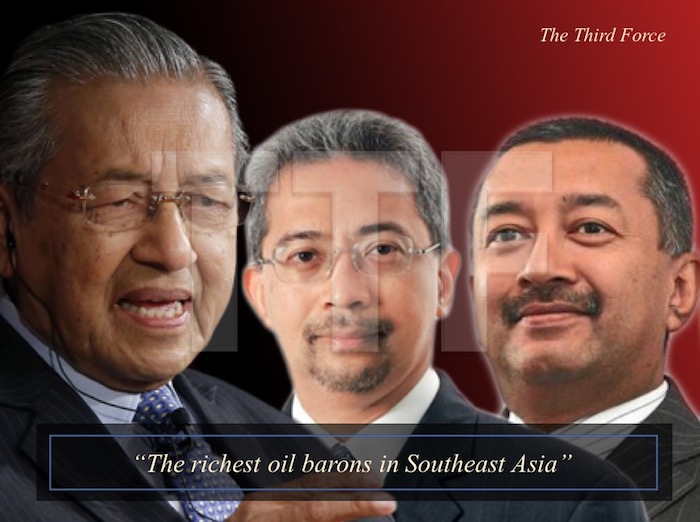
THE THIRD FORCE
Early in January 2013, a large number of Malaysians became confused when Petron Corporation (PCOR) commenced the rebranding of almost 600 Esso and Mobil gas stations nationwide. These stations were inherited by PCOR through its acquisition of ExxonMobil’s downstream business in 2012 with EXCEL Petroleum, an industrial lubricant concern. The acquisition turned Mirzan Mahathir into a major petrol pump operator and the largest competitor there was to Petronas, an oil and gas giant fully owned by the Government of Malaysia (GoM).
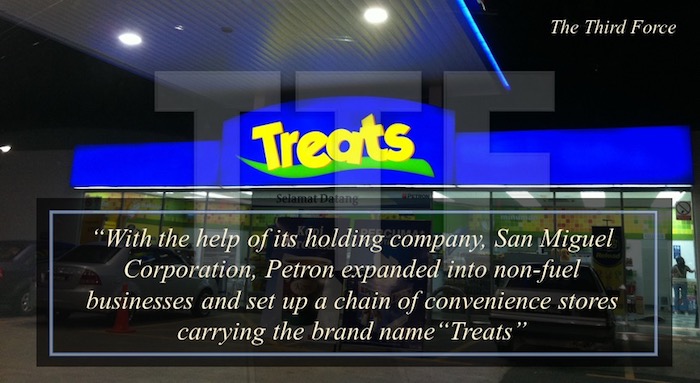
The son of Malaysia’s longest serving premier, Dr Mahathir Mohamad, Mirzan held shares both in Petron Malaysia (PEM) and its parent concern, PCOR. On the 15th of December 2010, a Philippine conglomerate specialising in food and beverage, San Miguel Corporation (SMC), exercised a share option that gave it 68.3 percent of PCOR’s stakes. A press release by Petron Malaysia dated the 5th of June 2013 confirmed that Mirzan did indeed hold substantial shares in the holding company and was a member of its board.
If that isn’t enough to convince you that Mirzan is behind PEM, several sections of PCOR’s and SMC’s by-laws stipulate that one needs to be a shareholder in order to sit on the directorial board of any of its companies. Mirzan was elected director of PCOR on the 13th of August 2010. That should put to rest any doubt that the son of Mahathir is indeed a stakeholder in the largest oil refining and marketing company there is in the Philippines.
Now that we have that covered, let’s move on to the most pressing of all questions, one that probably is on everyone’s mind – just what exactly does Mirzan control? What is it that the Mahathirists – i.e., people who’d die for Mahathir just to keep his material worth a secret – are keeping from us? Is it true that the family of Mahathir Mohamad controls substantial interests in the oil and gas industry and may be the richest oil baron family there is in Southeast Asia?
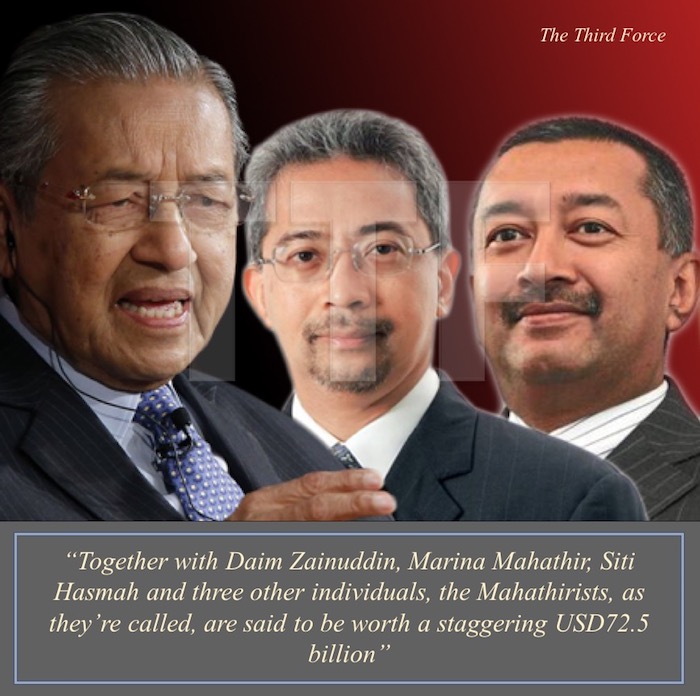
By virtue of PCOR’s holding of ExxonMobile’s downstream business – or, business that concerns marketing, refining and retail operations, Mirzan has somewhat of an exclusive say in the way retail is handled across the Peninsula of Malaysia, Sabah and Sarawak. He does not, however, have access to ExxonMobile’s oil exploration, extraction, shipping and wholesale operations, activity that brings in ten times more profit than retail. That access was provided to him in 2013 though through a massive network of associations that involved his brother, Tan Sri Mokhzani Mahathir.
Mokhzani’s flirt with the oil and gas industry began with Kencana Petroleum Berhad, an integrated engineering and fabrication oil and gas production outfit that specialised in building and supplying drilling rigs. Despite being the record holder for providing the world’s tallest movable wellhead platforms, the company lacked deepsea drilling technology on par with what the Chinese had developed for exploration in the South China Sea. Mokhzani began looking for partners who could provide the service and knowhow but refused to consider Petronas as an option.
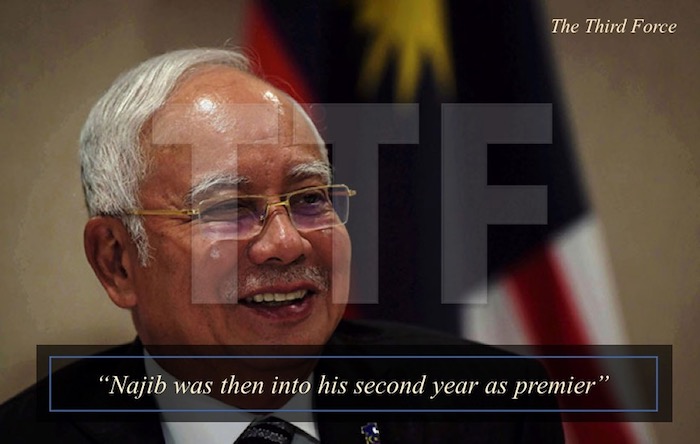
Mokhzani’s father, Mahathir, was sore that Najib had not revived plans to build a crooked bridge to replace the Malaysian side of the Johor-Singapore causeway. The whole purpose of the bridge was to force Singapore into renegotiating Maritime Security arrangements with Malaysia in ways that would grant our country access to oil rich areas at the edge of the South China Sea. Najib’s refusal to revive the project made dealing with Petronas less appealing. While Mahathir sat contriving plans to oust Najib as a measure of vendetta, Mokhzani turned to his childhood friend and longtime associate, Tan Sri Shahril Shamsuddin.
Shahril was then the co-owner of his family telecommunications concern, Sapura. In 2011, he undertook in a massive RM12 billion deal with Mokhzani to merge SapuraCrest Petroleum Bhd with Kencana. The deal came to be known as “the largest ever in the history of corporate Malaysia” and resulted in the establishment of SapuraKencana (SK) Petroleum, an integrated oil and gas service and solutions provider. Late in 2012, both Shahril and Mokhzani turned Seadrill Ltd into SK’s second largest shareholder by getting the Bermuda based deepwater drilling company to part with 49 percent of its stake in the tender-rig business.
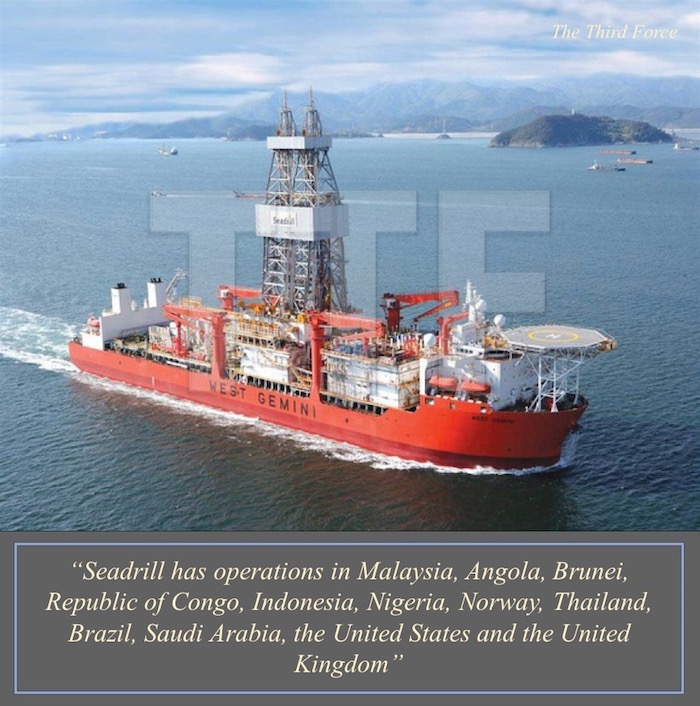
The deal cost SK USD2.9 billion and earned the company substantial control of the tender-rig market, then estimated to be worth some USD2 trillion. Seadrill’s owner, a Norwegian tycoon named Fredriksen, hopped on to SK’s board and helped Shahril secure some terms of associations with ExxonMobil and Chevron. That immediately turned SK into one of the world’s largest integrated oil and gas services and solutions provider and offered Mokhzani an opportunity to tap into ExxonMobil’s upstream business.
With the help of some nominee concerns that had direct and beneficial ownerships in oil related companies, Mokhzani was able to penetrate the exploration, extraction, shipping, and wholesale part of ExxonMobile’s operations, which, in Malaysia and Indonesia alone, covered an expanse of over 1.3 million acres. That gave Mahathir’s sons significant control of ExxonMobil’s upstream and downstream business within the region and turned them into the richest and most manipulative oil barons there were in Southeast Asia.
To be continued…

No comments:
Post a Comment